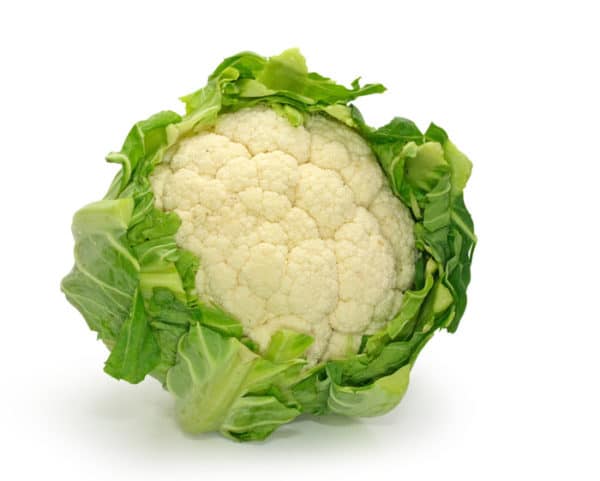
[et_pb_section admin_label=”section” transparent_background=”off” allow_player_pause=”off” inner_shadow=”off” parallax=”off” parallax_method=”off” padding_mobile=”off” make_fullwidth=”off” use_custom_width=”off” width_unit=”on” custom_width_px=”1080px” custom_width_percent=”80%” make_equal=”off” use_custom_gutter=”off” fullwidth=”off” specialty=”off” disabled=”off”][et_pb_row admin_label=”Row” make_fullwidth=”off” use_custom_width=”off” width_unit=”on” custom_width_px=”1080px” custom_width_percent=”80%” use_custom_gutter=”off” gutter_width=”3″ padding_mobile=”off” allow_player_pause=”off” parallax=”off” parallax_method=”off” make_equal=”off” column_padding_mobile=”on” parallax_1=”off” parallax_method_1=”on” parallax_2=”off” parallax_method_2=”on” parallax_3=”off” parallax_method_3=”on” parallax_4=”off” parallax_method_4=”on” disabled=”off”][et_pb_column type=”4_4″][et_pb_post_title admin_label=”Post Title” title=”on” meta=”on” author=”on” date=”on” date_format=”M j, Y” categories=”off” comments=”on” featured_image=”on” featured_placement=”below” parallax_effect=”on” parallax_method=”on” text_orientation=”left” text_color=”dark” text_background=”off” text_bg_color=”rgba(255,255,255,0.9)” title_all_caps=”off” use_border_color=”off” border_color=”#ffffff” border_width=”1px” border_style=”solid” disabled=”off”] [/et_pb_post_title][et_pb_text admin_label=”Text” background_layout=”light” text_orientation=”left” use_border_color=”off” border_style=”solid” disabled=”off” border_color=”#ffffff”]
Most people don’t realize that gut health has a tremendous effect on the key hormones involved in body composition, metabolism, and appetite control. Two key hormones, ghrelin and leptin, have an equal impact on the health of the gut. It’s a two-way street that can take you on a collision course, or lead you to a healthy lean life. Which do you choose?
Today I’ll talk a bit about the gut microbiome, ghrelin and leptin hormone levels, and their relationship to insulin resistance. These are all very important topics, with a lot of emerging research and new articles appearing regularly in scientific journals. I encourage you to review the links for more in-depth information. They are very complex topics that cannot be entirely covered in one article.
In fact, this will be a two-part series, so stay tuned for the follow-up piece on tackling leptin resistance.
First, though, let’s start by reviewing your two main appetite controlling hormones – ghrelin and leptin.
Ghrelin
When most people think of hormones, they think of something secreted by one of the glands, like the thyroid gland or adrenal gland. However, neither ghrelin nor leptin has a gland the way that estrogen, thyroid, cortisol, and insulin do. Instead, Ghrelin is secreted by the stomach.
The stomach secretes ghrelin when it’s empty, signaling the hypothalamus to turn on appetite. This process starts before you or your client even take a bite of food. Just thinking about a meal, seeing it or smelling it, can turn on appetite.
Ghrelin’s job is also about achieving homeostasis in the body; this means keeping things balanced, ensuring adequately feeding and optimizing energy. Ghrelin can also be an antagonist when dieting. The body responds by increasing ghrelin levels to stimulate hunger as an impetus to feeding!
When ghrelin goes haywire

These same types of circumstances can also lead to elevated insulin levels after a meal.
In lean people and in people who consistently eat 3 meals a day, ghrelin spikes before a meal and then recedes. In people who eat inconsistently throughout the day, who eat a lot of small meals throughout the day, or who are stressed, ghrelin level remains high.
Because ghrelin is an appetite-stimulating hormone, when ghrelin levels stay high, people overeat and eat snacks, contributing to weight gain.
Leptin
Leptin is secreted by fat cells. It is supposed to notify the brain when enough food’s been eaten to keep energy levels high, and stimulates appetite to turn off. When leptin levels are low, appetite is triggered; when leptin levels are high, appetite is suppressed. Levels are lowest in the morning and rise through the evening, when your body doesn’t need more food for cell energy since you are going to bed.
Levels are lowest in the morning and rise through the evening, when the body doesn’t need more food for cell energy since bedtime is near. Ideally, when enough food has been consumed to replenish energy stores and keep metabolism humming, the appetite gets turned off.
When leptin goes haywire
Leptin levels decrease when people go on calorie-restricted diets. This signals to the brain that it needs to bump up the appetite and decrease metabolism to conserve energy. The body views “calorie counting” and “famine” in the same way.
If the dieter doesn’t eat more, they will likely lose some weight while on the restricted calories. Please note, however, that restricting calories for prolonged periods can cause different issues with blood sugar levels and insulin. Because this may also impact essential nutrient intake, I don’t recommend severe calorie restriction. The issue with severe calorie restriction is that once caloric intake is increased, the body still believes it is starving with its fat stores too low, so protectively pack that fat away – mostly around the waist.
Eating small meals all day is also not a good strategy to keep from overeating. When your client eats all day, their insulin and leptin levels remain elevated all day. That may sound good, because elevated leptin shuts off appetite, right? The problem is that, much like how insulin resistance works, over time, when leptin levels are constantly elevated, the hypothalmus and pancreas become resistant to it. This results in constant hunger. Plus, elevated insulin results in fat storing.
Leptin resistance destroys the immune system
Leptin resistance occurs when so much leptin is being produced that the receptors in the brain finally shut down and ignore the hormone. The brain perceives that leptin levels are constantly low when they are really massively high. This leaves people feeling chronically hungry and eating too much, especially at night. The body also shuts down its metabolic processes in trying to conserve energy reserves. So the metabolism becomes sluggish.
This not only packs on the belly fat, but it significantly impacts immunity. How? Too much leptin destroys the body’s “regulatory T cells”. Regulatory T cells are the body’s “swat team for its immune system”, fighting off inflammation and preventing diabetes, auto-immune diseases, heart disease, and more. Here’s an interview I did last year on this topic.
Leptin resistance is seen in obese people.
It isn’t a pretty cycle:
- Obese people have high leptin levels that the body doesn’t recognize as high, so they eat more and gain more body fat
- More body fat means more leptin in fat cells. This has been found to be true in research. Fat people have more leptin. Leptin levels correlate with BMI.
- The brain perceives starvation, so the appetite increases.
- This stimulates the person to eat more, and the vicious cycle continues.
Leptin resistance and insulin resistance are both seen in obese people. Insulin resistance occurs when there’s too much insulin being produced and the brain stops listening. Learn more about how you can test your client for blood sugar issues and learn more about insulin resistance, here.
The intricate dance between ghrelin and leptin signaling – normal appetite signaling – is disrupted by obesity.
I think it is fascinating that pharmaceutical companies have figured some of this out and are already focusing on diabetes medications that specifically target gut health. They are looking at what to add to prescription diabetes medications that will re-balance blood sugar through strengthening the gut microbiome and affecting the signaling from gut hormones.
While looking to the gut is a worthwhile endeavor, I believe that drugs are not the answer. The methods we use in functional medicine and nutritional endocrinology are far more effective than offering people a medication, which fails to address the underlying diet and lifestyle habits that are the root cause.
So what lifestyle considerations contribute to leptin resistance and what can you do to help your client?
In my next Practitioner Corner post, I will talk more about leptin resistance. You will learn what are the main culprits which contribute to your client’s developing leptin resistance, and how YOU can help such clients. Stay tuned…
COMMENTS: Let me know if you have specific questions you’d like me to address while you wait for Part II!
If you would be interested in learning more about nutritional endocrinology and diving deeper with this knowledge for your clients, I invite you to join me and the other students in the Nutritional Endocrinology Practitioner Training program. Through this education, we learn more about the body systems and how they interact with the endocrine system. The application of food and nutrients is also studied to help the body be at its optimal.
[/et_pb_text][/et_pb_column][/et_pb_row][/et_pb_section]
Share this:

Are you feeling stuck?
Do you feel as if something is missing from your practice that's keeping you from delivering breakthrough outcomes for your clients?.
Recent Posts
Our Programs
Nutritional Endocrinology Practitioner Training (NEPT)
The Mastery and Certification tier is our flagship program and provides everything you need to feel confident as a practitioner who knows how to get results that lead to healthy and happy clients.
Functional Assessment Mastery
Explore the relationships between the most important hormones and their relationship with nutrition.
Functional Nutrition Mastery
Learn how to support your clients to eat and supplement in a way that reduces and eliminates chronic symptoms.
Medical Disclaimer: The information on this website is not intended to replace a one-on-one relationship with a qualified health care professional and is not intended as medical advice. It is intended as a sharing of knowledge and information from the research and experience of Dr. Ritamarie Loscalzo, drritamarie.com, and the experts who have contributed. We encourage you to make your own health care decisions based upon your research and in partnership with a qualified health care professional.
Disclosure: Sometimes (but not always), when I share resources in my programs, newsletter, and on my website, I'm using an affiliate link, which means I do make money if you buy. My credibility is extremely important to me; therefore, I only endorse the products, services, and people I believe in. DrRitamarie.com is independently owned and the opinions expressed here are my own.
Click here to see our Privacy Policy.












My leptin levels consistently run .5 to .7 (range is .5 to 15.2). I am thin, but have a large belly. (I am 5 ft 7 1/2in and weigh 119). Is that too low? I am always hungry but do not give in to that and eat 3 small meals per day. I have been gluten free, sugar free, dairy free, soy free for 3 years. Does the leptin score have anything to do with my belly?
Hi, Helen! Huge problems take place when leptin levels get too high or too low. Cascades of various hormone imbalances take place, weight gain ensues, and appetite becomes erratic and unstable. Controlling leptin levels is the most important factor for burning excess belly fat. One of most important factors for controlling leptin is lowering insulin! Issues such as timing, what you’re eating, and exercise can be factors. If you haven’t already considered our Sweet Spot Solution blood sugar balancing program, I encourage you to take a look. We definitely teach you about leptin resistance – http://www.TheSweetSpotSolution.com
I love Dr Ritamarie’s explanations, i think she is the coolest dr. i have no medical education but would love to pursue some nutritional gut endocrinology ed, does dr. ritamarie offer some? thanks
Hi, Noelia, We certainly do have a nutritional endocrinology practitioner training program. There is no need for formal training prior to this, but we do have an application process for this. After you apply, you’ll be able to schedule a time to talk with us about the program, and have your questions answered. Here is the link for the application – http://www.NEPTApply.com
The explanation of ghrelin and leptin really helped! Thanks.